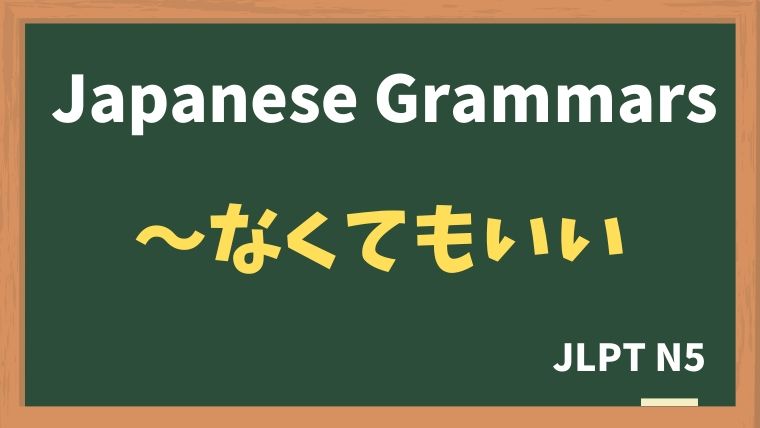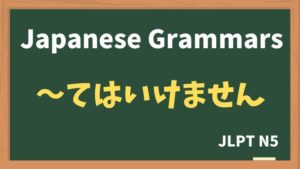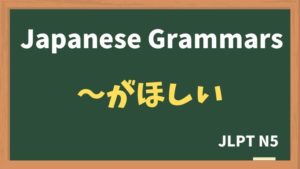
Explanation:〜なくてもいい
fa-check-circleMeaning
"don't have to"
Used to express that it is not necessary to do something, or that someone doesn't have to do something. It can be translated as "You don't have to" or "It's okay if you don't" in English.
fa-check-circleForm
V(nai form) + くてもいい
| Verb(masu form) | V(nai form) + くてもいい |
| たべます | たべなくてもいい |
| いきます | いかなくてもいい |
| します | しなくてもいい |
fa-check-circlePoints
- No Obligation: It implies that there's no need or obligation to perform an action.
- Verb Structure: The verb is in its negative form followed by 「くてもいい」.
- Politeness: This is a polite expression often used in daily conversations.
fa-check-circleJLPT Level
N5
Sample sentenes
今日は 休みだから、学校に 行かなくてもいいです。
I don't have to go to school because there are no classes today.
彼は 子供だから、入場料を 払わなくてもいいです。
He doesn't have to pay the entrance fee because he is a child.
この 漢字の 書き方は 覚えなくてもいいです。読めればいいです。
You don't have to memorize how to read this kanji. If you can't read it, it's ok.
お腹が いっぱいだったら、全部、 食べなくてもいいですよ。
You don't have to eat it all if you are full.
パソコンは 片付けなくてもいいですよ。私が 後で 使いますから。
You dont't have to tidy up the computer because I will use it later.
私の 国では 家に 入るとき、靴を 脱がなくてもいいです。
We don't have to take off our shoes when we enter the house, in my country.
天気予報によると、今日は 晴れだから 傘を 持っていかなくてもいいですよ。
According to the weather forecast, it will be sunny today, so you don't have to bring an umbrella.
Vocabulary
| Japanese | English |
| にゅうじょうりょう | entrance fee |
| かきかた | how to write |
| ぜんぶ | all / everything |
| かたづける | to tidy up |
| くつ | shoes |
| ぬぐ | to take off |
| てんきよほう | weather forecast |
| はれ | sunny |






